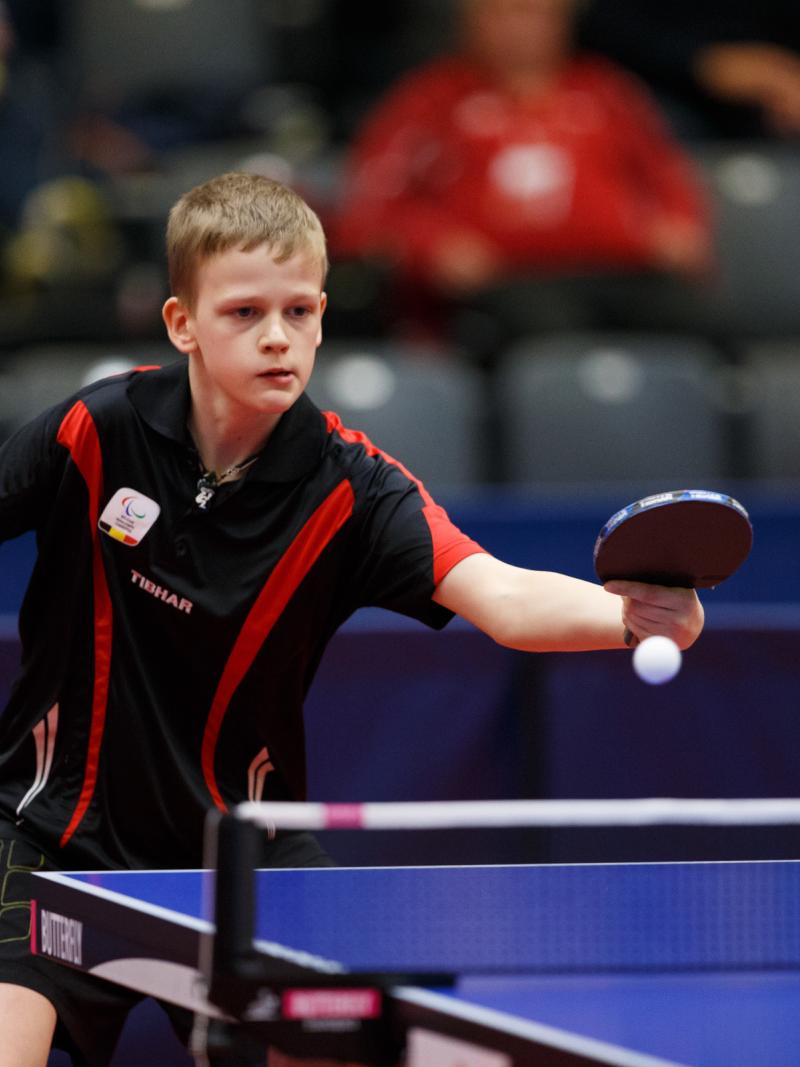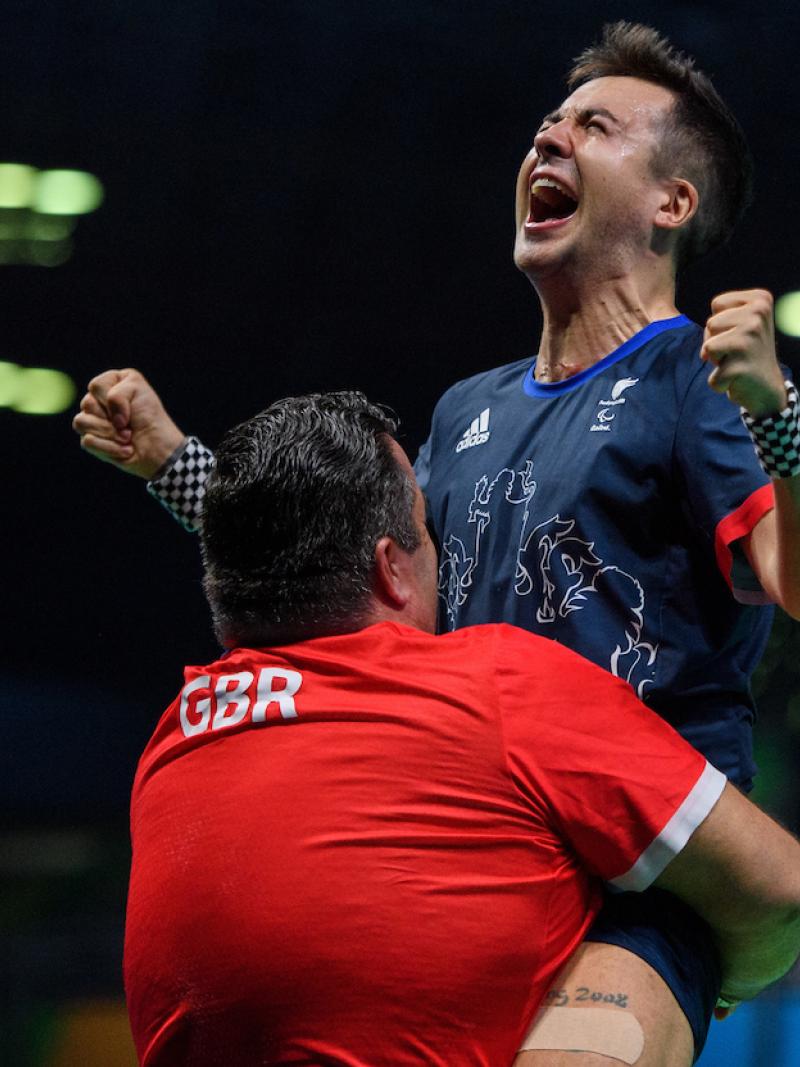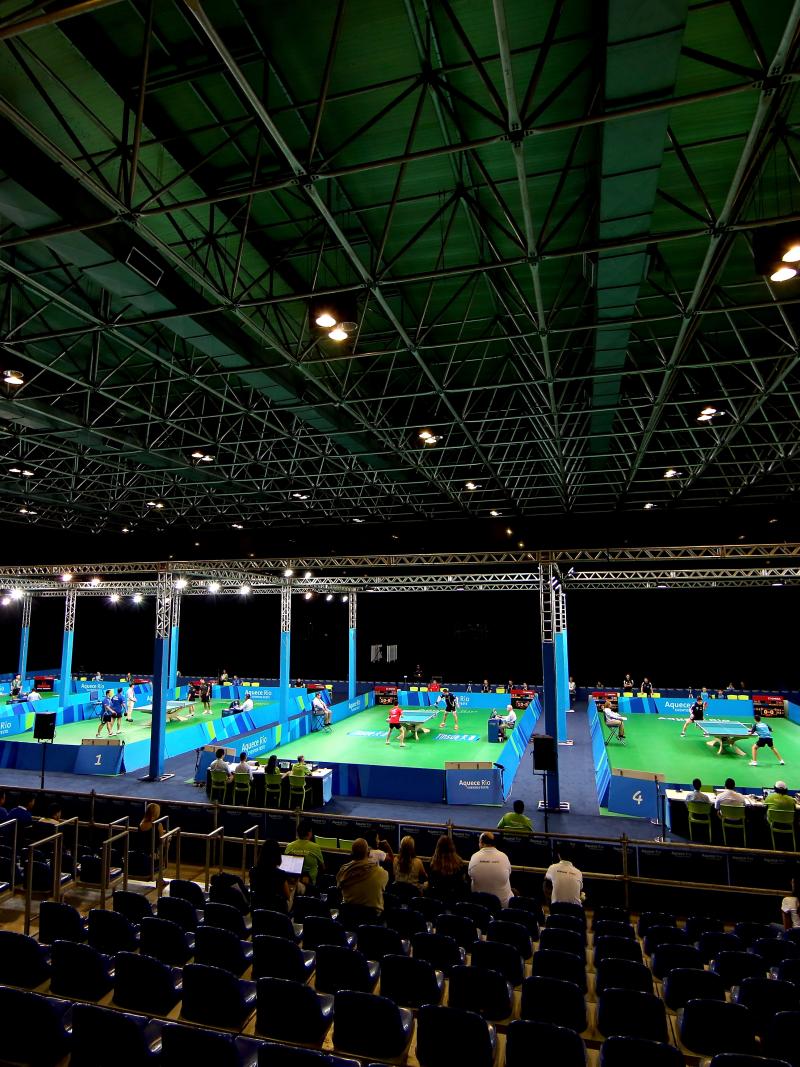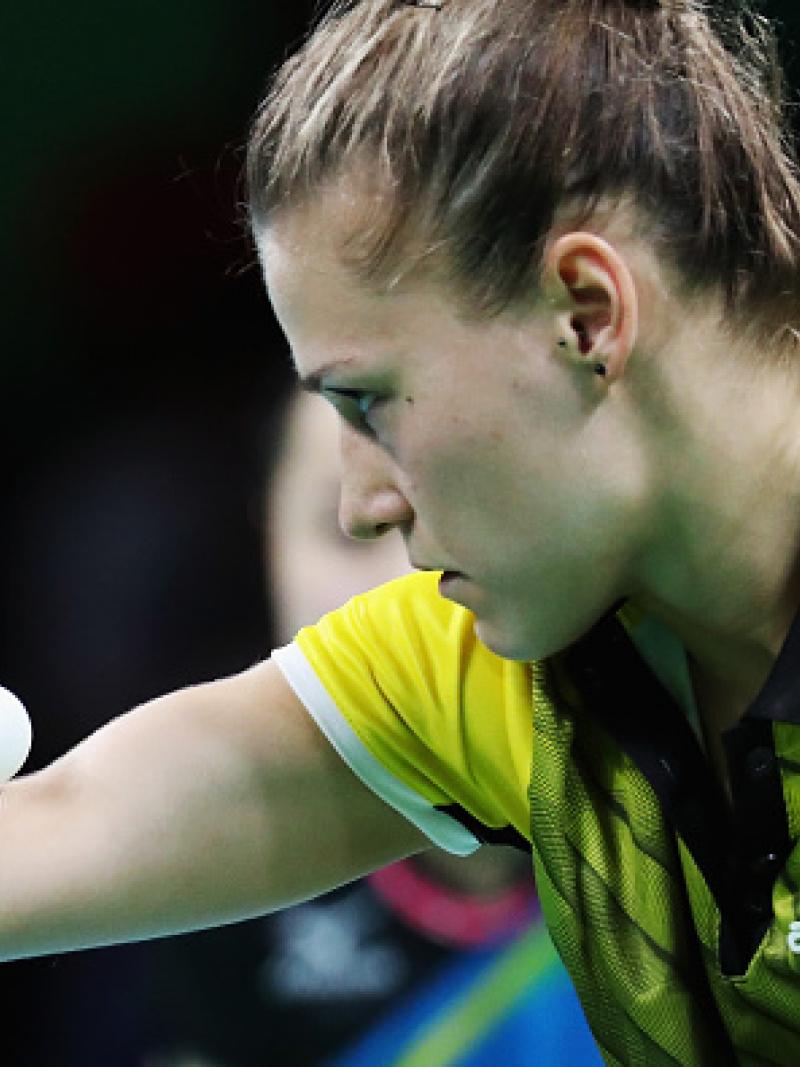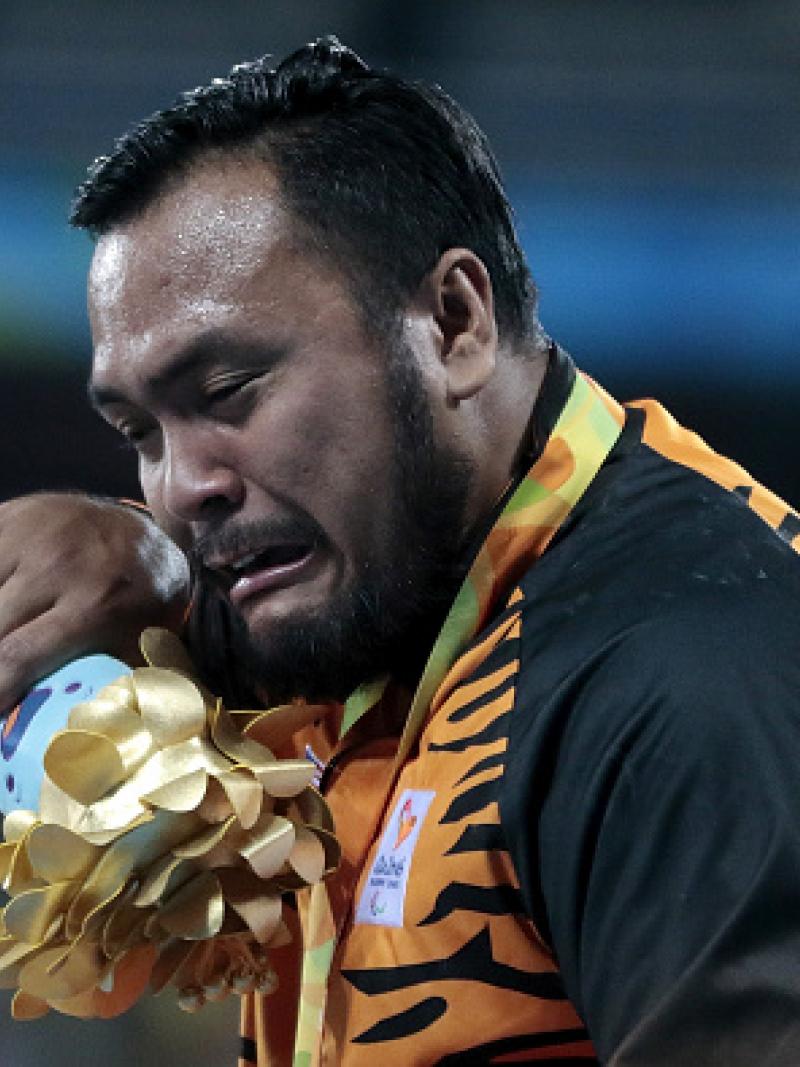Table tennis: Five things learned from Rio 2016
With new and returning champions being crowned, find out what emerged from the sport at the Paralympic Games. 09 Oct 2016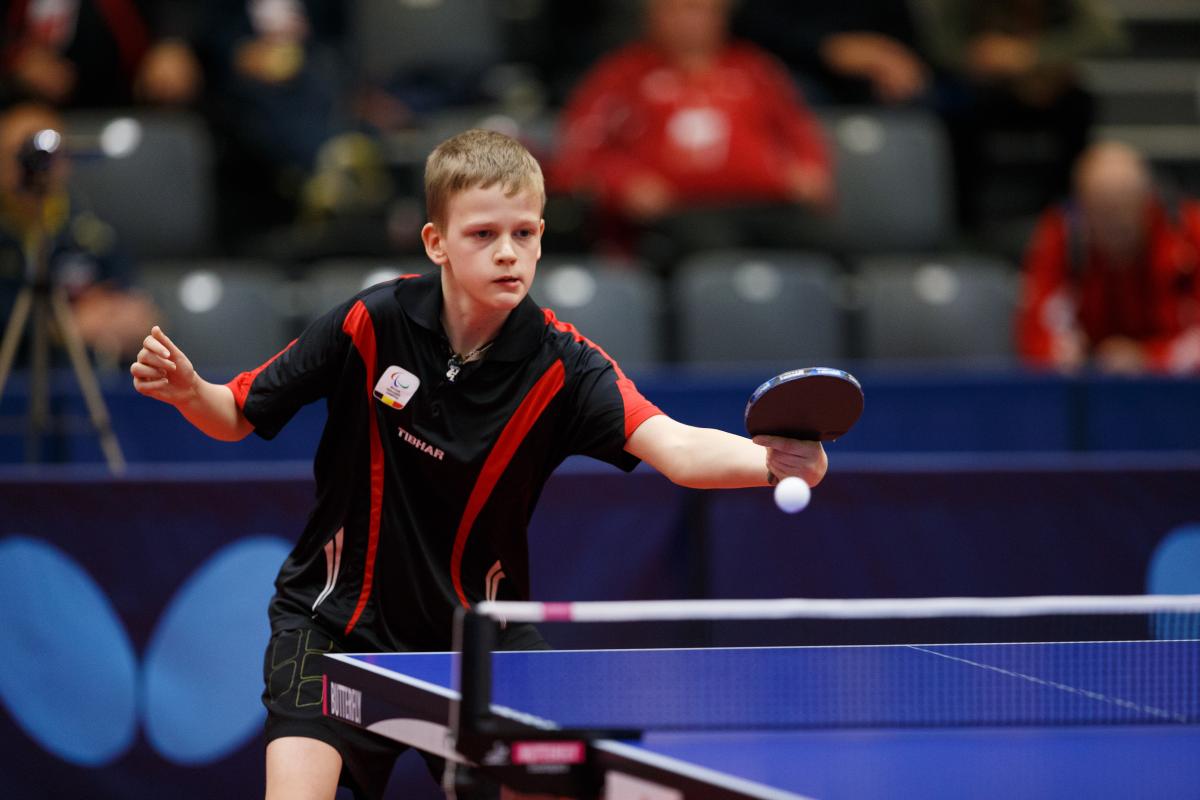
Laurens Devos is Paralympic and European champion
Para table tennis competition at the Rio 2016 Paralympic Games feature new and returning faces on the podium. Here are some of the five things learned from the action that went down at the Riocentro Pavilion:
1. Age does not matter
Just ask Belgium’s Laurens Devos. He made his international debut at the senior level at last year’s European Championships, where, at 15 years old, he won gold in the men’s singles class 9. At that time, he was the fifth seed.
Flash forward to Rio 2016, and the Belgian did not drop a single set, going on to win the gold medal at 16 years old. Devos defeated the Netherlands’ Gerben Last, bronze medallist from London 2012.
2. Long awaited gold for Sandra Paovic
Since bursting into the Para table tennis scene in 2013, Croatia’s Sandra Paovic had been a favourite for gold in the women’s class 6. A former able-bodied player who competed at eight World Championships, Paovic’s career seemed over when she was involved in a life-threatening car accident in January 2009. But she came back to the sport she loved, winning the European title in 2013, then the World title in 2014. She finally added the Paralympic title to her resume in September, stamping her authority in her class.
3. Natalia Partyka remains unstoppable
The Polish athlete only seems to be getting better and better. Partyka, who also competed at the Olympics in August, took her fourth singles Paralympic title at Rio 2016 in the women’s class 10. The multi-world and European champion added the team gold to her resume as well in Rio. Perhaps the only scare came when she faced Brazil’s Bruna Costa Alexandre in the semifinals. Alexandre was the only athlete who took a set from Partyka but eventually fell 3-2.
4. Men’s class 6 rivalry lives up to hype
The men’s class 6 title was up in the air between Denmark’s Peter Rosenmeier and Spain’s Alvaro Valera. The two had last met in a tight matchup at the 2015 European Championships, with Valera upsetting Rosenmeier in front of his home crowd. Much anticipation was set for Rio 2016, where the two met again in a finals showdown. And in a thrilling five-set battle, Rosenmeier finally secured the gold medal, one he had last won at Beijing 2008.
5. China still rules in the sport
China littered the table tennis medals table, capturing 21 total, 13 which were silver. Three singles gold medal matches featured an all-Chinese showdown. Perhaps the most notable gold medal victory for China was in the women’s class 1-2 between China’s Jing Liu and South Korea’s Su-Yeon Seo. The two have gone back-and-forth on the international scene. Liu defeated Seo for the world title in 2014, but Seo topped Liu at the Asian Championships the year after. However at Rio, Liu successfully defended her Paralympic title with a 3-1 victory. And perhaps the biggest shock was Ma Lin not competing for a singles medal. Regarded as one of the all-time greatest, the multi-Paralympic, world and Asian champion lost to Italy’s Mohamed Amine Kalen in the class 9 quarterfinals.

 Facebook
Facebook
 Instagram
Instagram
 Twitter
Twitter
 Youtube
Youtube
 TikTok
TikTok
 Newsletter Subscribe
Newsletter Subscribe

